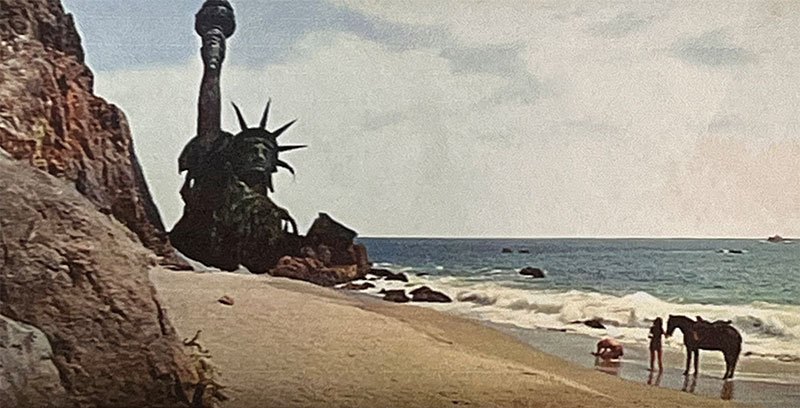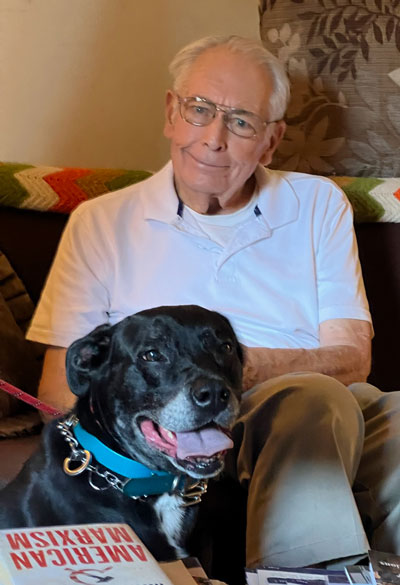Amanda’s Tale #2—The Descent Of Darkness—Atlanta, Summer, 2148 A.D.

“I’ve got some savings and a few investments left, Mary,” replied Amanda. “I went to the State Bank last week and got enough cash to last us for a couple of months. The “No Nos” didn’t find it, I’m sure. Help me to the riser, and I’ll go down and open the vault. Min, you stay up here and try to clean up as best you can. We won’t be long.”
The lower level of the Jennings mansion, formerly the scene of many delightful parties, dances, and recitals by young musicians, was trashed even worse than the upstairs. Smashed and slashed furniture was scattered around the rooms, and all of the valuable original and rare paintings by famous artists of the past 200 years had been removed and burned in the back yard. Her prized photo images of many of her special gatherings had also been consigned to the fires of stupidity and mindless rage set by the mob of modern Neanderthals trying to destroy the “demons” of the past, as the “No Nos” and their demagogic leaders taught the new masses.
The past, they claimed, was responsible for the disaster facing the nation, since all of history was contaminated by racial hatred, by fanatical Christians and their allies, including most of the Jewish community, who refused to accept the wisdom of the mob that science and modern advances in technology and medical care had infuriated the various “gods” that were increasingly being worshipped by hordes of unthinking and unwashed brain damaged cretins from the pit of Hell. Thus, the civilization of The Confederacy and the other nations on the Great Northern Continent was being slowly ripped apart and expunged from history. All of the past, these devils claimed, had to be eradicated by violence and fire before whatever “god” they worshipped would spare them, and grant them an “idyllic” existence free from modern technology. Or so their “prophets” of doom assured them.
Amanda had long since been convinced that some of the powerful politicians in the Congress, particularly in the Senate, were allying themselves with the enemy outside of the Confederacy’s borders—with the barbaric hordes at its western border and with the war lords at its northern border, in hopes of being spared when what was increasingly being considered inevitable by the news media—the fall and destruction of the government and culture of her beloved country—occurred.
Amanda had despised politicians most of her life, and knew that only a few left in the Confederated government had the character that President Aldin Morgan had displayed during his thirteen years in that office. She knew that if he promised to do all he could to protect the Confederated Republics, then he would be true to his word until his last breath. Unfortunately he was surrounded by connivers and cowards, as she had called them to their faces on more than one occasion, and she was equally despised by many in the Congress, having been verbally attacked several times on the floor of the Senate as an “anachronism” surviving from a time long gone. But she had been proud to suffer their verbal attacks, and had vowed to continue to expose their mendacity as long as she was able to do so.
The two women stopped in front of a section of wall that until that morning had two valuable oil paintings hanging on it. She moved an inconspicuous hanger hook, and a section of the wall slid open, revealing a standard armored and fire proof vault. She turned and faced her loyal employee—her friend of many years. ‘Mary”, she began, “we’ve known each other for many years, haven’t we?”
“Yes, Miss Amanda, we have. Almost thirty years, I think.”
“Thirty years”, Amanda said softly, the images of all those years flashing through her still lucid memory. “Hmmm, I guess it has been that long, Mary. You were working for Samantha Hayes when we met at a party she gave for me. Must have been around thirty years ago, wasn’t it?”
“It was, Miss Amanda. I still remember how beautifully you played Miss Samantha’s piano for everybody at that party. I had never heard beautiful music like that until that very day. Thanks to you, Miss Amanda, I know all about the music you love, and I love it also.” She smiled at the old woman, seemingly so fragile, now, tears beginning to trickle down her cheeks.
“Mary, you know I have an incurable cancer of the blood. I don’t have a lot of time left, and I want you to do something for me. Something very special.” She looked at her friend and employee before continuing, some tears starting to drop from her eyes. “Mary”, she asked with difficulty, “have I been a good person to work for all these years? Have I treated you and the others respectfully? You all have done so much to make my life enjoyable, but have I done anything to cause you to think badly of me? Anything, Mary?” She looked into the eyes of a woman who was more of a special friend than a mere employee, seeing the young woman who applied for a job with her so long ago, with a young son by her side.
“Amanda, why would you think that of yourself?” the younger woman replied. “All of the folks who’ve worked for you, at least all I’ve known, have loved you and had nothin’ but respect for you. I can’t think of anytime you’ve ever said anything unkind to any of us, even those times when we knew you were angry at one of us, or at me, for doin’ somethin’ that displeased you. Nobody could have ever had a better person to work for, Amanda. That’s the God’s truth.”
Amanda smiled and said, “I’m glad to hear that from you, Mary. I know sometimes people with a lot of money, or position in society, or with a long family background, sometimes think they are better than others. But I’ve been a Christian since I was a teen, Mary. I’ve tried hard to serve our Lord and treat everybody like I’d want to be treated, to honor my Savior. When I’m gone, Mary, remember me that way, please. Will you?” she seemed to plead.
Mary faced the old woman and put both hands on her arms. “I promise I will, Amanda. I promise. I’ll always remember you as a good Christian woman and a good friend, ‘cause you’ve been that to me and to all of us who’ve worked for you. And I know you treat others the same way. I’ve talked to folks over the years, Amanda. Most feel the same way about you that I do. Not as a famous woman and a great musician, but because you are real. You live what you believe, Amanda. Most folks don’t, nowadays. And that’s the God’s truth.”
---------------------------------
Next time: Amanda’s Tale Part 3—Amanda Jenning’s final request













